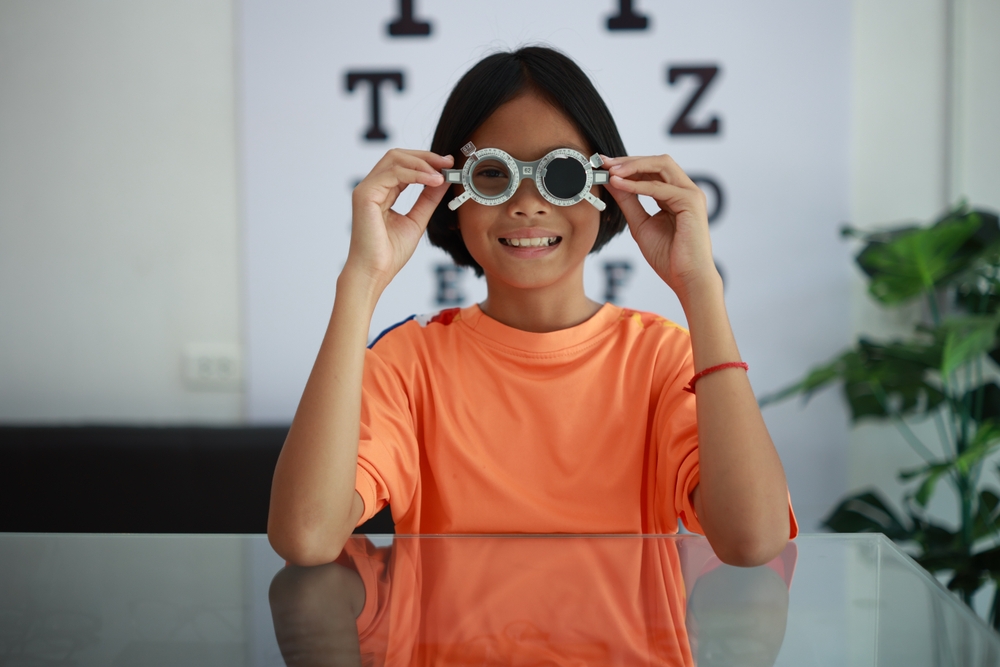
How Often Do Kids Need a Pediatric Eye Exam?
Regular eye exams are essential for children’s overall health, development, and academic success. Early detection and treatment of eye conditions can help prevent long-term vision problems and improve a child’s quality of life. But just how often should kids have their eyes checked? Let’s break down the recommended guidelines and explain why routine exams at Pupila Family Eye & Ear Care are essential to maintaining optimal eye health for children.
Why Pediatric Eye Exams Are Essential
A child’s vision plays a fundamental role in learning and development. In fact, about 80% of learning in young children happens visually, so undetected vision issues can impact everything from reading skills to confidence in the classroom. Pediatric eye exams allow us to detect issues like myopia (nearsightedness), amblyopia (lazy eye), and strabismus (crossed eyes) early, which are often treatable if caught in time. Regular exams ensure your child’s vision remains on track, helping them perform well in school and enjoy all aspects of daily life.
How Often Should Kids Have Their Eyes Examined?
The American Optometric Association (AOA) and other eye health organizations recommend the following timeline for pediatric eye exams:
• Infant Eye Exam (Around 6 Months Old): This initial exam helps identify any early signs of vision problems or eye health concerns, even in babies who cannot yet communicate.
• First Comprehensive Exam (Around Age 3): By the age of three, most children should have a thorough eye exam. This visit can detect any emerging vision issues and ensure that both eyes are developing equally and functioning well together.
• Pre-Kindergarten Exam (Around Age 5-6): This is an essential exam to have before starting school. It can identify any vision problems that might hinder learning, such as issues with focusing, eye alignment, or depth perception.
• School-Age Kids (Ages 6-18): Once children are in school, they should receive eye exams every year to monitor any changes in vision.
Signs Your Child May Need More Frequent Eye Exams
While these guidelines are suitable for most children, some kids may need more frequent exams. Here are some signs that indicate your child might benefit from an eye exam sooner:
• Squinting or tilting the head to see clearly
• Frequent eye rubbing or blinking
• Sitting too close to the TV or holding books close to the face
• Covering one eye to see better
• Complaints of headaches or eye discomfort
• Difficulty following moving objects or tracking words on a page
If you notice any of these behaviors, it’s a good idea to schedule an eye exam at Pupila Family Eye & Ear Care to ensure your child’s vision isn’t affecting their daily life.
Protecting Your Child’s Vision with Routine Care at Pupila Family Eye & Ear Care
At each stage of growth, children’s visual needs change, making routine eye exams essential to catch any shifts in vision or eye health. With consistent check-ups, you can give your child the advantage of clear vision and healthy eyes throughout their development.
Schedule your child’s next eye exam with Pupila Family Eye & Ear Care, where our friendly team is dedicated to providing thorough, compassionate care that supports your child’s visual health for years to come. Contact our Energy Corridor office, located in Houston, Texas, by calling (281) 741-7295 to book an appointment today.








